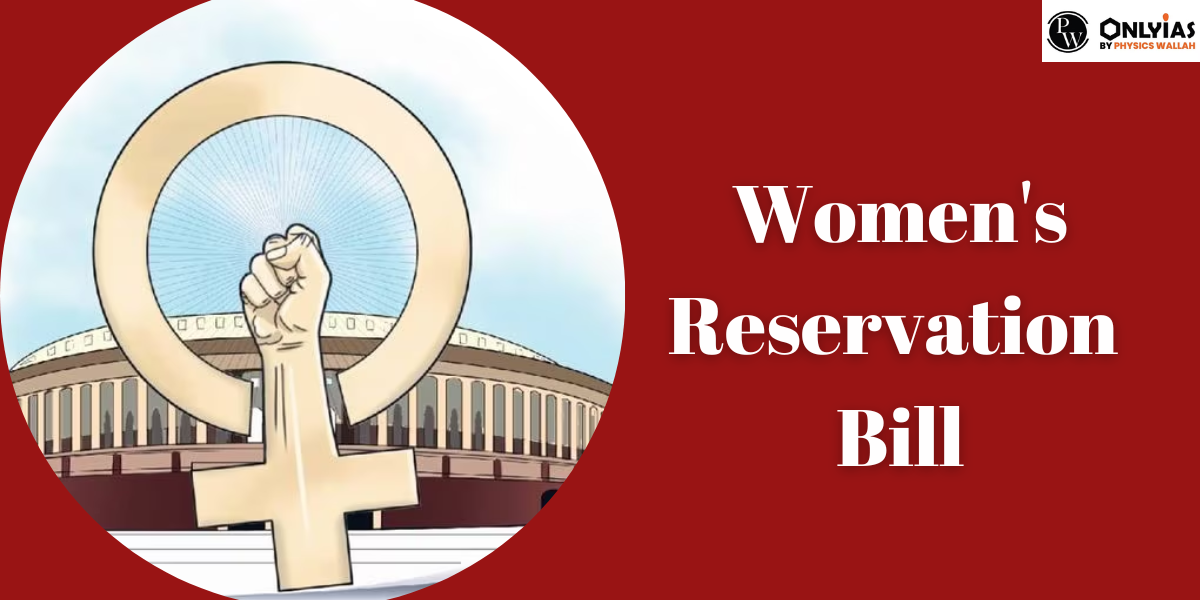Women's Reservation Bill: Women's Reservation Bill (Constitution 108th Amendment Bill, 2008) cleared by the Union Cabinet, it reserves 33% of seats in the Lok Sabha and state legislatures for women.

Women’s Reservation Bill: The Women’s Reservation Bill, formally known as the Constitution (One Hundred and Eighth Amendment) Bill, 2008, has received clearance from the Union Cabinet. This significant legislation aims to allocate 33 percent of seats in both the Lok Sabha and state legislative assemblies for women. During the inaugural day of the special parliamentary session, the bill took center stage.

Also Read:
Women’s Reservation Bill: The Constitution (One Hundred and Eighth Amendment) Bill, 2008 is designed to address gender disparity in political representation. It proposes significant changes to the reservation of parliamentary and legislative assembly seats for women.
This amendment seeks to reserve one-third of all seats in the Lok Sabha and state legislative assemblies for women. The allocation of these reserved seats will be determined by an authority designated by Parliament.
Furthermore, the bill stipulates that one-third of the seats reserved for Scheduled Castes and Scheduled Tribes will also be set aside for women belonging to those groups in both the Lok Sabha and legislative assemblies.
Reserved seats may be allotted by rotation to different constituencies within a state or union territory, ensuring a fair distribution of opportunities for women across regions.
It’s important to note that reservation of seats for women is not intended to be a permanent arrangement. The bill specifies that this reservation shall cease to exist 15 years after the commencement of this Amendment Act, reflecting a commitment to addressing gender imbalances over time.
The Women’s Reservation Bill, also known as the Constitution (108th Amendment) Bill of March 9, 2010, is an Indian parliamentary bill aimed at amending the Constitution to allocate one-third of seats in the Lok Sabha (the lower house of Parliament) and all state legislative assemblies to women.
Women’s Reservation Bill: Opinions on the reservation policy diverge significantly. Advocates emphasize the need for affirmative action to uplift women’s status. Recent studies on panchayats have revealed the positive impact of reservation on women’s empowerment and resource allocation.
The women's reservation bill aims to allocate 33% of seats in state legislative assemblies and Parliament for women, with additional sub-reservations for SCs, STs, and Anglo-Indians within this quota.
The proposal to reserve 33% of parliamentary seats for women must be examined within this larger framework. The National Perspective Plan on Women was the first to advocate for reservations, extending from Panchayats to Parliament.
The Union Cabinet reportedly greenlit a bill for 33% reservation of seats for women in the Lok Sabha and State/Union Territory assemblies. Official confirmation is pending. The main opposition party, Congress, has expressed support for this development.

<div class="new-fform">
</div>